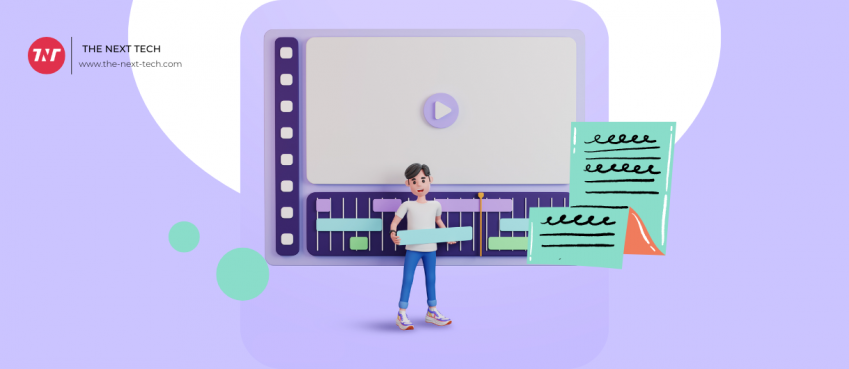
The introduction of AI into the realm of Academia seems something akin to a hot potato; it looks and smells great on the surface but a bite can leave you with a scalded tongue. Maybe not as dramatic, but it certainly is a controversial topic. According to a recent in-depth Copyleaks study, nearly 60% of GPT-3.5 content across a sample of 26 popular academic subjects contained some form of plagiarism. Those are glaring stats that highlight the risks that students expose themselves to when they blatantly integrate AI-generated content into their work.
While AI-generated content has raised concerns about plagiarism and other academic malpractices, it should still be acknowledged numerous ways in which students can use AI ethically. That’s the focus of this article; we’ll explore ten ways in which students can utilize generative AI tools to enhance their learning and research processes while avoiding any unethical practices.
1. Generating Study Summaries
As a student, you’ve likely had that “Who will write my essay?” moment when you need to pore over lengthy texts studying research papers, essays, and dissertations. This takes a lot of time and it can also get boring very quickly.
Generative AI can summarize lengthy texts, making it useful for students to understand complex academic papers within a short time. However, students should always go through the study material first to better their comprehension and retention of important info.
2. Outlining Research Papers
A well-structured outline will always aid you in the research and writing process. That serves as a roadmap for the student to logically organize their paper. AI can help students develop detailed outlines by analyzing key points and providing a framework for their research papers.
Also read: The Top 10 Digital Process Automation (DPA) Tools3. Formulating Research Questions
If you’ve worked on a research paper, a thesis, or a dissertation before, then you’ll know that right next to generating a hypothesis are the research questions. However, coming up with the right research questions isn’t always easy, especially when the student has yet to fully comprehend and synthesize the thesis or the assignment in general.
Generative AI can assist students in crafting clear and concise research questions by analyzing the given topic or field of interest. This process can help students define the scope of their study and establish a strong foundation for their research.
4. Suggesting Keywords and Search Terms
Going onto scholarly databases such as Google Scholar or Semantic Research requires the student to use the right keywords and search terms for the process to be effective. Generative AI can aid students by suggesting relevant keywords and search terms.
You can therefore enhance the quality and relevance of the research materials and also avoid wasting time on trial-and-error searches.
5. Distilling Content
One of the biggest problems students face when trying to study or read lengthy, complicated content is to simply distill it to its most basic information. Generative AI can distill and summarize entire research papers, chapters, pages, or even specific sections almost to a tee.
Students can therefore quickly “scan” scholarly material without actually having to go through all of it. A quick disclaimer here; students should always try their best to at least read the abstract of the content and familiarize themselves with the study content to ensure they fully understand the subject matter.
Also read: 50+ Cool Websites To Visit When Bored | Best Fun Websites To Visit In 20256. Generating Creative Ideas
This is a fun one. AI can be a creative wellspring for innovative ideas in academic projects, essays, or presentations. You can provide prompts or questions to generative AI models, and the AI will provide a list of ideas that you can use in your work. Students can also brainstorm and explore new perspectives on a topic using AI.
7. Learning How to Cite and Generate Bibliographies
An important academic rule is to always avoid plagiarism through proper citation, which is attributing work to its proper owner. One way to get assistance at citing is by getting assistance from academic experts.
Generative AI like ChatGPT can also assist students in generating accurate citations and bibliographies. However, the student should always countercheck the latest style manuals in their discipline before committing to any output by generative AI.
A great way to use a tool like ChatGPT to learn citation rules is by applying a prompt like: “ChatGPT, generate a citation for research paper X in APA, MLA, and Chicago formats”, like in the image above. Chat GPT will produce the bibliographies and in-text citations side by side, making it easier for you to learn how to distinguish these various styles.
8. Learning a New Language
Bet you might not have known this, but generative AI is great at helping students learn a new language. Most generative AI tools can assist with language translation. However, with the integration of voice into AI, these tools will eventually be able to help students out with pronunciation practice and even conversation simulations.
Also read: Top 10 IT Companies In The World By Market Cap9. Data Analysis and Visualization
Students and researchers can use AI tools to process and visualize data. They can do this by feeding data to the AI or by asking the AI such as ChatGPT to generate a similar but random dataset. They can then ask the AI to generate meaningful conclusions and effective data presentations. All results should always be counterchecked
10. Assisting in Programming and Coding
If you are a novice coder, a comp science student, or are just interested in programming in general, generative AI provides a shortcut to learning how to code in different languages. However, any code output from a tool like ChatGPT should always be taken with a pinch of salt. Usually, the code contains errors that a novice might not catch. Still, such AI tools can simplify the learning curve and help students improve their coding skills faster than usual.
Final Words
There is no doubt that generative and conversational AI presents a new lifeline for students to learn faster and understand difficult concepts without much struggle. However, students are advised to NEVER submit AI-generated content as their own. Not only might the content not be accurate and contain plagiarism; but being found out is a grave academic offense that can have serious consequences.
By following the hacks provided above, students can ethically make effective use of AI. Students can improve their academic performance, boost creativity, and enrich their skill sets. If students adopt AI as an effective study companion rather than a cheat code, they’ll always be on the right side of the academic law.
Top 10 News
-
01
[10 BEST] AI Influencer Generator Apps Trending Right Now
Monday March 17, 2025
-
02
The 10 Best Companies Providing Electric Fencing For Busines...
Tuesday March 11, 2025
-
03
Top 10 Social Security Fairness Act Benefits In 2025
Wednesday March 5, 2025
-
04
Top 10 AI Infrastructure Companies In The World
Tuesday February 11, 2025
-
05
What Are Top 10 Blood Thinners To Minimize Heart Disease?
Wednesday January 22, 2025
-
06
10 Top-Rated AI Hugging Video Generator (Turn Images Into Ki...
Monday December 23, 2024
-
07
10 Top-Rated Face Swap AI Tools (Swap Photo & Video Ins...
Friday December 20, 2024
-
08
10 Exciting iPhone 16 Features You Can Try Right Now
Tuesday November 19, 2024
-
09
10 Best Anatomy Apps For Physiologist Beginners
Tuesday November 12, 2024
-
10
Top 10 Websites And Apps Like Thumbtack
Tuesday November 5, 2024







